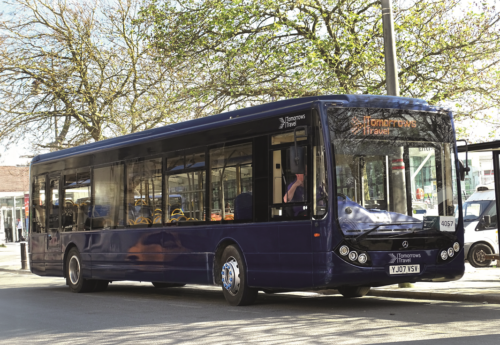
Renowned for its beaches and dramatic coastline, Dorset is good bus operating territory but what is it like to start a brand new coach and bus company there? Richard Sharman visited Tomorrows Travel to find out
We all know that if you have worked in the industry for a good length of time, coaches and buses get in your blood. Well, for directors Jay Thornton and Jason Cousins at Tomorrows Travel that was certainly the case – but it goes further than that. They had developed a wealth of experience running and operating passenger-carrying vehicles in the county of Dorset and beyond before starting up their own operation.
The days of the Yellows
Prior to starting Tomorrows Travel, Jay and Jason both worked at Bournemouth Transport, which traded as Yellow Buses and Yellow Coaches. It was an operation that had its ups and downs and changed hands a few times, but there is no doubting that those yellow-liveried buses were iconic in the city, just as London’s red ones are.
Tomorrow’s Travel’s story starts here, as Jay explained: “For the last eight months of Bournemouth Transport’s operation, Jason and I were running a recently restructured Yellow Coaches business. The idea of the change to the structure was to bring the whole operation under the control of one office and one management team. We were responsible for running the Yellow Coaches private hire and contracts operations, along with Golden Tours Bournemouth franchise and a megabus contract between Poole, Bournemouth, Heathrow Airport and London.
“At the time of the takeover the division was very fragmented, as the commercial department would do the private hire quotes, the traffic department would do the driver and vehicle allocation, and so on. The move to bring it under one team made a huge improvement to how the division was run, for the better.”
[…]By subscribing you will benefit from:
- Operator & Supplier Profiles
- Face-to-Face Interviews
- Lastest News
- Test Drives and Reviews
- Legal Updates
- Route Focus
- Industry Insider Opinions
- Passenger Perspective
- Vehicle Launches
- and much more!


